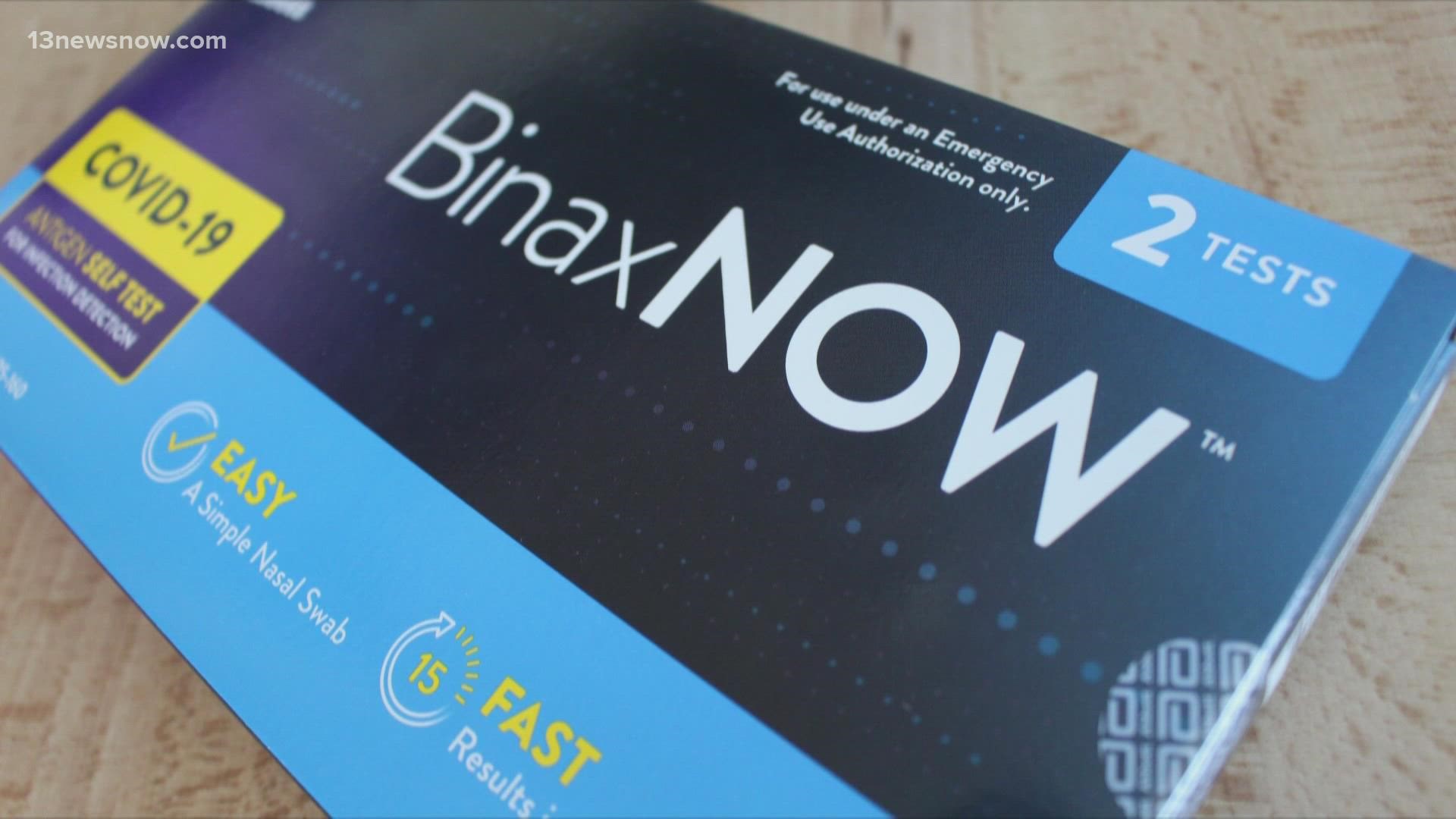NORFOLK, Va. — There was the onslaught of people trying to find at-home COVID-19 tests at pharmacies and other stores that carried them. Then, things got a little bit easier when you could request free tests from the government. (You still can, by the way.)
In a lot of ways, the testing fervor, in general, slowed down. Some of that may have had to do with the realization that COVID-19 wouldn't be going anywhere, coupled with the fact that a lot more people were vaccinated, then boosted, and, in some cases, boosted again.
Recently, there's been an increase in the reported cases of COVID-19. Reported cases, obviously, means that people have been getting positive test results. You're not required to report a positive result from an at-home test, although the Centers for Disease Control and Prevention (CDC) really encourages you to let your health care provider know if test positive. (The main thing is to make sure that if you've got COVID-19 you get the right care or treatment that's needed.)
How accurate are at-home COVID-19 tests?
As far as whether you should trust the result of an at-home test, here's what the CDC says on its website:
- Positive results from self-tests are highly reliable.
- Negative results from self-tests do not rule out SARS-CoV-2 infection. A negative self-test result may not be reliable, especially if you have symptoms associated with COVID-19.
- Invalid results from self-tests mean the test did not work properly, and a new test is needed to get an accurate result.
What do your test results mean?
If you get a positive result:
- The test detected the virus and you have an infection.
- Stay home for at least 5 days and isolate from others in your home.
- Tell your close contacts.
- Wear a well-fitted mask when around others. If available, a N95 or KN95 respirator is recommended.
- Watch for symptoms. If you have any emergency warning signs, seek emergency care immediately.
- Tell your healthcare provider. Contact them as soon as possible if your symptoms get worse, you're more likely to get very sick because you are an older adult or have an underlying medical condition (possible treatment may be available), or you have questions about your isolation.
If you get a negative result:
- The test did not detect the virus, but doesn’t rule out an infection.
- Some self-tests are designed to be used in a series (also known as serial testing). Consider repeating the test 24 to 48 hours later. Multiple negative tests increases the confidence that you are not infected with the virus that causes COVID-19.

